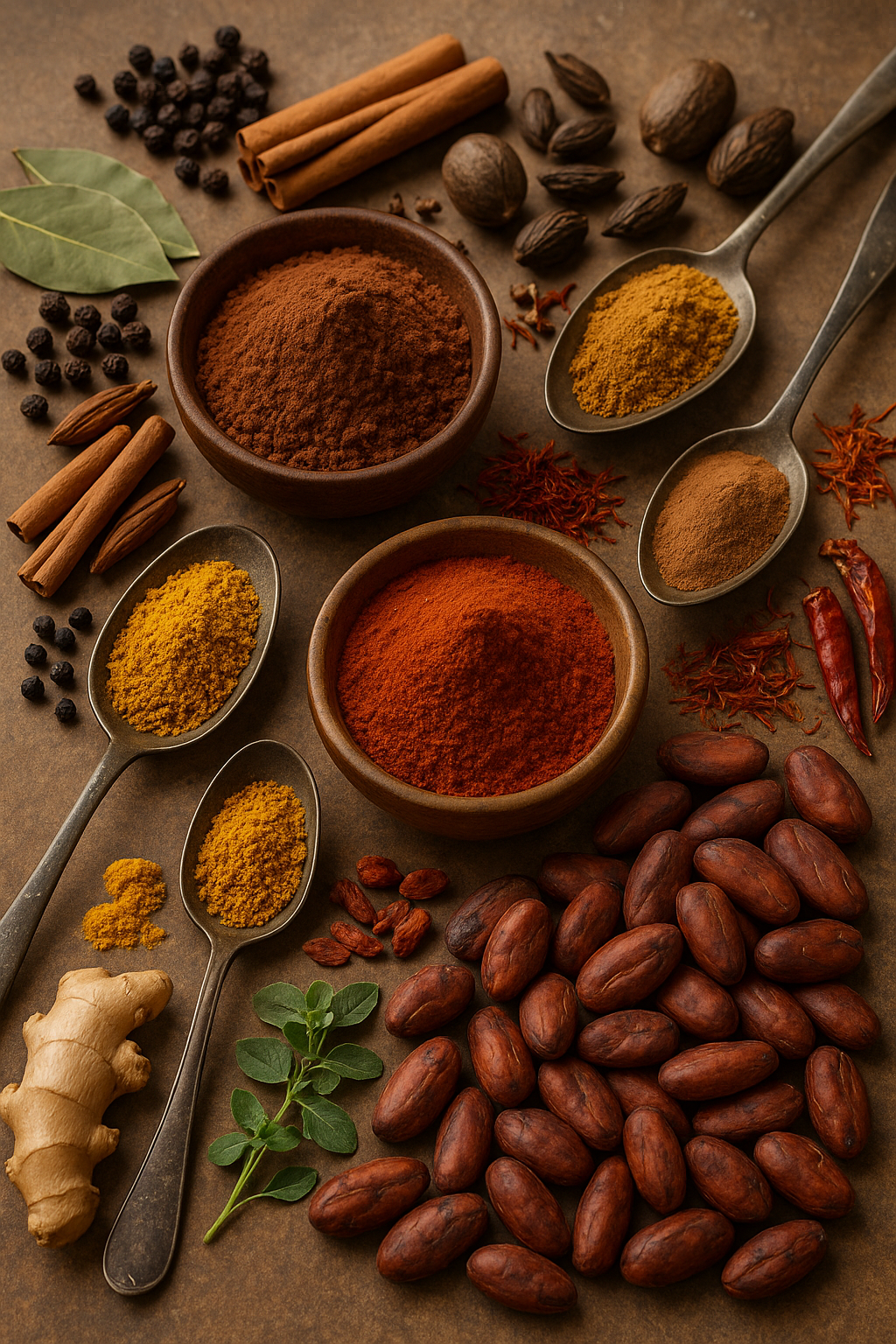
In November 2025, the U.S. government removed tariffs on a wide range of imported agricultural goods, including key ingredients like spices, cocoa, and paprika. The policy change reverses earlier trade restrictions imposed under the reciprocal tariffs framework introduced in early 2025. It reflects both economic and diplomatic considerations, aiming to reduce food inflation while strengthening trade relationships with major exporting countries.
What Changed?
On November 14, an executive order removed additional tariffs on over 200 imported food and agricultural products. These tariffs had been applied broadly earlier in the year as part of a strategy to negotiate better trade deals. The rollback applies retroactively to goods imported on or after November 13, allowing businesses to recover duties paid after that date.
The exemption list includes items the U.S. doesn’t produce in meaningful quantities—products that rely on tropical climates or specific growing conditions. The shift in policy focuses on ensuring these essential imports remain affordable and accessible to American consumers and businesses.
Products Now Tariff-Free
Among the most significant categories affected:
- Spices: Tariffs were removed on both whole and ground forms of black pepper, chili, paprika, cinnamon, turmeric, ginger, cloves, nutmeg, cardamom, saffron, and various mixed spice blends like curry powder. Herbs such as bay leaves and oregano were also included.
- Cocoa: Cocoa beans, powder, butter, and liquor are now exempt. These are critical inputs for chocolate makers and other food manufacturers.
- Other foods: Coffee, tea, tropical fruits (bananas, mangoes, pineapples), fruit juices, and even beef were included in the exemptions.
This broad coverage targets goods that are heavily imported and not widely produced within the United States.
Why the Policy Shift?
Several key factors influenced the decision:
- High Grocery Prices: Food inflation has been a major concern for U.S. households. Removing tariffs on non-domestically produced staples helps ease pressure on importers and, by extension, consumers.
- No Domestic Supply to Protect: For many of these products—like cocoa or turmeric—there is little to no U.S. production. The tariffs were raising costs without supporting any American industries.
- Progress in Trade Talks: The administration tied the exemption announcement to trade framework deals with countries like India, Vietnam, Ecuador, and Ghana. The move signals goodwill and encourages continued economic cooperation.
- Business and Industry Pushback: U.S. food manufacturers, importers, and retailers had been calling for relief. With many supply chains still recovering from previous disruptions, tariff removal was seen as a way to stabilize input costs.
Impact on U.S. Importers and Consumers
Importers and distributors will benefit from lower landed costs, especially in categories like spices and cocoa where U.S. buyers have few alternatives. U.S. food producers—from chocolate companies to sauce manufacturers—will also see reduced ingredient costs, potentially softening retail prices or preventing further hikes.
While consumers may not see immediate discounts at the store, the removal of these tariffs helps reduce inflationary pressure on commonly used items like coffee, chocolate, and seasoning blends.
Opportunities for Exporting Countries
The exemption opens the door for stronger exports from key agricultural producers:
- India regains ground in spices and tea, with chili, turmeric, and cumin among its top exports to the U.S.
- Vietnam is well positioned with pepper, cinnamon, and coffee. U.S. importers may favor Vietnamese goods as price competitiveness improves.
- Ghana and Côte d’Ivoire, leading suppliers of cocoa, will likely benefit from increased U.S. demand for beans and derivatives.
By removing cost barriers, the U.S. has rebalanced trade terms in a way that supports supply-chain recovery and global market participation.
Final Thoughts
The U.S. tariff rollback is a targeted response to rising food costs and evolving trade relationships. By focusing on imports, the U.S. doesn’t produce—like spices and cocoa—the policy aims to protect consumers and ease supply-chain strain without compromising domestic production. For exporters, it creates an opening to reengage with American buyers and expand market share. As food prices and trade dynamics continue to evolve, this move sets the stage for a more cooperative—and less costly—approach to essential food imports.
References
- The White House. (2025, November 14). Fact Sheet: President modifies scope of reciprocal tariffs for certain agricultural products.
- Reuters. (2025, November 14). Trump cuts tariffs on beef, coffee and other foods.
- FoodNavigator-USA. (2025, November 14). Trump removes cocoa, coffee, beef from tariff list.
- Hindustan Times. (2025, November 16). US cuts tariffs on over 250 food products.
- Confectionery Production. (2025, November 17). Hershey welcomes rollback of cocoa tariffs.
CBP. (2025, November 15). CSMS #66814923: Guidance on tariff exemption for agricultural products.
